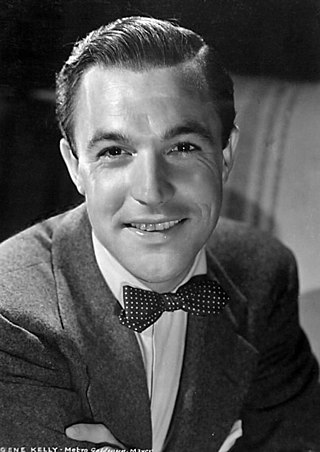
Eugene Curran Kelly was an American dancer, actor, singer, director and choreographer. He was known for his energetic and athletic dancing style and sought to create a new form of American dance accessible to the general public, which he called "dance for the common man". He starred in, choreographed, and co-directed with Stanley Donen some of the most well-regarded musical films of the 1940s and 1950s.

Network is a 1976 American satirical drama film produced by Metro-Goldwyn-Mayer, released by United Artists, written by Paddy Chayefsky and directed by Sidney Lumet. It is about a fictional television network, the Union Broadcasting System, and its struggle with poor ratings. The film stars Faye Dunaway, William Holden, Peter Finch, Robert Duvall, Wesley Addy, Ned Beatty, and Beatrice Straight.
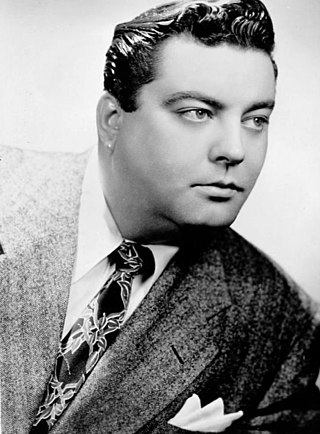
John Herbert Gleason was an American actor, comedian, writer, and composer known affectionately as "The Great One". He developed a style and characters from growing up in Brooklyn, New York and was known for his brash visual and verbal comedy, exemplified by his city bus driver character Ralph Kramden in the television series The Honeymooners. He also developed The Jackie Gleason Show, which maintained high ratings from the mid-1950s through 1970. The series originated in New York City, but filming moved to Miami Beach, Florida in 1964 after Gleason took up permanent residence there.

Sidney Aaron "Paddy" Chayefsky was an American playwright, screenwriter and novelist. He is the only person to have won three solo Academy Awards for writing both adapted and original screenplays.
Antoine and Colette is a 1962 French short film written and directed by François Truffaut. It is the second installment in Truffaut's five-film series about Antoine Doinel, the character he follows from boyhood to adulthood. Antoine and Colette was made for the 1962 anthology collection Love at Twenty, which also featured shorts from the renowned directors Shintarô Ishihara, Marcel Ophüls, Renzo Rossellini and Andrzej Wajda.

Smokey and the Bandit II is a 1980 American action comedy film directed by Hal Needham, and starring Burt Reynolds, Sally Field, Jerry Reed, Jackie Gleason and Dom DeLuise. The film is the sequel to the 1977 film Smokey and the Bandit.
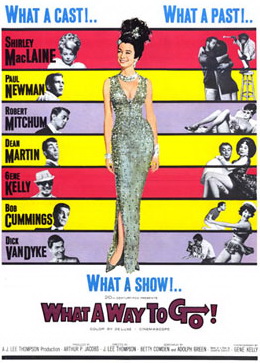
What a Way to Go! is a 1964 American black comedy film directed by J. Lee Thompson and starring Shirley MacLaine, Paul Newman, Robert Mitchum, Dean Martin, Gene Kelly, Bob Cummings and Dick Van Dyke.

Joseph Edward Levine was an American film distributor, financier, and producer. At the time of his death, it was said he was involved in one or another capacity with 497 films. Levine was responsible for the U.S. releases of Godzilla, King of the Monsters!, Attila and Hercules, which helped revolutionize U.S. film marketing, and was founder and president of Embassy Pictures.

Ménilmontant is a neighbourhood of Paris, situated in the city's 20th arrondissement. It is roughly defined as the area north of the Père Lachaise Cemetery, south of Parc de Belleville, and between Avenue Jean-Aicard on the west and Rue Pelleport on the east. The neighborhood includes an 87 m high hill, making it the third-highest neighborhood in Paris.

Eternally Yours is a 1939 American comedy drama film produced and directed by Tay Garnett with Walter Wanger as executive producer, from a screenplay by C. Graham Baker and Gene Towne. The film stars Loretta Young and David Niven, and also features a strong supporting cast including Broderick Crawford, Billie Burke, Eve Arden, ZaSu Pitts, and C. Aubrey Smith. Composer Werner Janssen was nominated for the Academy Award for Best Music.

Let's Make Love is a 1960 American musical comedy film made by 20th Century Fox in DeLuxe Color and CinemaScope. Directed by George Cukor and produced by Jerry Wald from a screenplay by Norman Krasna, Hal Kanter, and Arthur Miller, the film stars Marilyn Monroe, Yves Montand, and Tony Randall. It would be Monroe's last musical film performance.

The Game Plan is a 2007 American sports family comedy film directed by Andy Fickman and with a screenplay by Nichole Millard and Kathryn Price from a story by Millard, Price and Audrey Wells. The film stars Dwayne "The Rock" Johnson in the lead role, Madison Pettis and Kyra Sedgwick. It follows a professional quarterback who finds out he has an eight-year-old daughter from a previous relationship.

The Wool Cap is a 2004 American television drama film directed by Steven Schachter, who wrote the teleplay with William H. Macy. It is an updated and Americanized version of the 1962 film Gigot starring Jackie Gleason, who wrote the original story. In the film, Charlie Gigot, a mute and alcoholic superintendent of a dilapidated New York City apartment building becomes the unwilling parent figure for Lou, a young girl temporarily left in his care by a woman who fails to return for her. The two and Gigot's pet monkey struggle to make it through the winter in his ramshackle basement apartment while he tries to find someone willing to take her in.

Leave It to Me! is a 1938 musical produced by Vinton Freedley with music and lyrics by Cole Porter. The book was a collaborative effort by Samuel and Bella Spewack, who also directed the Broadway production. The musical was based on the play Clear All Wires by the Spewacks, which was performed on Broadway for 93 performances in 1932, and which was filmed in 1933, starring Lee Tracy, Benita Hume, Una Merkel and James Gleason.
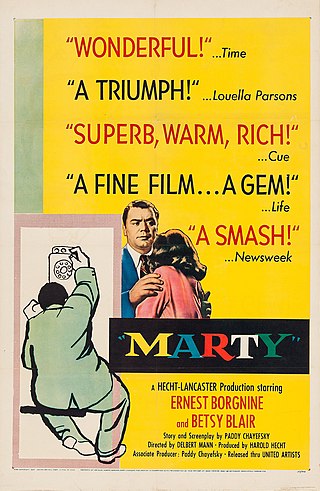
Marty is a 1955 American romantic drama film directed by Delbert Mann in his directorial debut. The screenplay was written by Paddy Chayefsky, expanding upon his 1953 teleplay of the same name, which was broadcast on The Philco-Goodyear Television Playhouse and starred Rod Steiger in the title role.
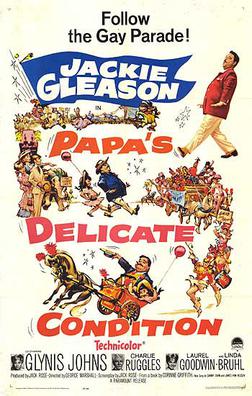
Papa's Delicate Condition is a 1963 American comedy film starring Jackie Gleason and Glynis Johns. It was an adaptation of the Corinne Griffith memoir of the same name, about her father and growing up in Texarkana, Texas. Jimmy Van Heusen (music) and Sammy Cahn (lyrics) won an Academy Award for Best Original Song for "Call Me Irresponsible".

The Heart Is a Lonely Hunter is a 1968 American film adaptation of the 1940 novel of the same name by Carson McCullers. It was directed by Robert Ellis Miller. It stars Alan Arkin and Sondra Locke, who both earned Academy Award nominations for their performances. The film updates the novel's small-town Southern setting from the Depression era to the contemporary 1960s. The film is recognized by the American Film Institute in AFI's 100 Years of Film Scores – Nominated.
Michel Magne was a French film and experimental music composer.
Benjamin Tatar was an American film, television, theater, and voice actor who was Jackie Gleason's aide and had lived with Ava Gardner.

Requiem for a Heavyweight is a 1962 American film directed by Ralph Nelson based on the television play of the same name with Anthony Quinn in the role originated by Jack Palance, Jackie Gleason and Mickey Rooney in the parts portrayed on television by Keenan Wynn and his father Ed Wynn, and social worker Grace Miller was portrayed by Julie Harris. Muhammad Ali, then known as Cassius Clay, appears as Quinn's opponent in a boxing match at the beginning of the movie.


















